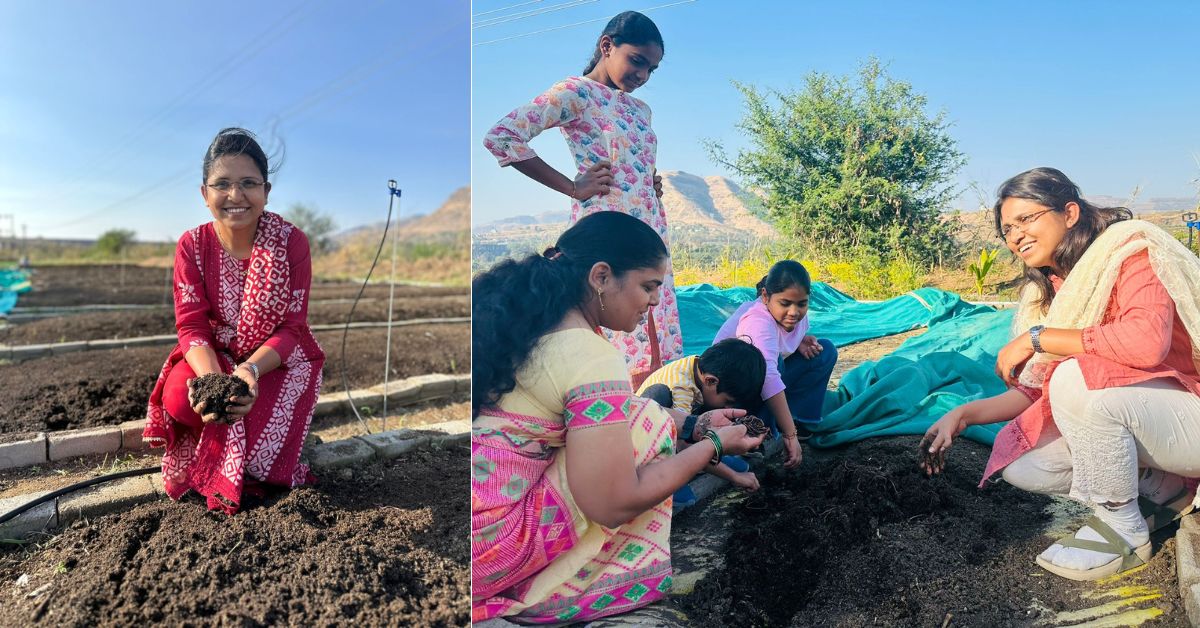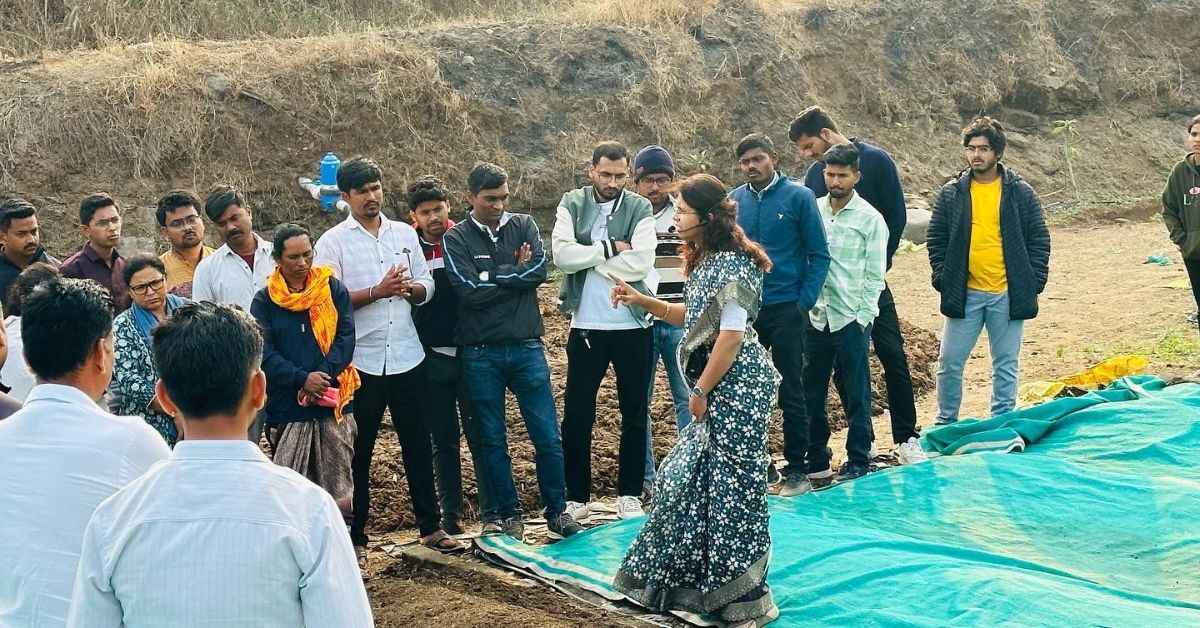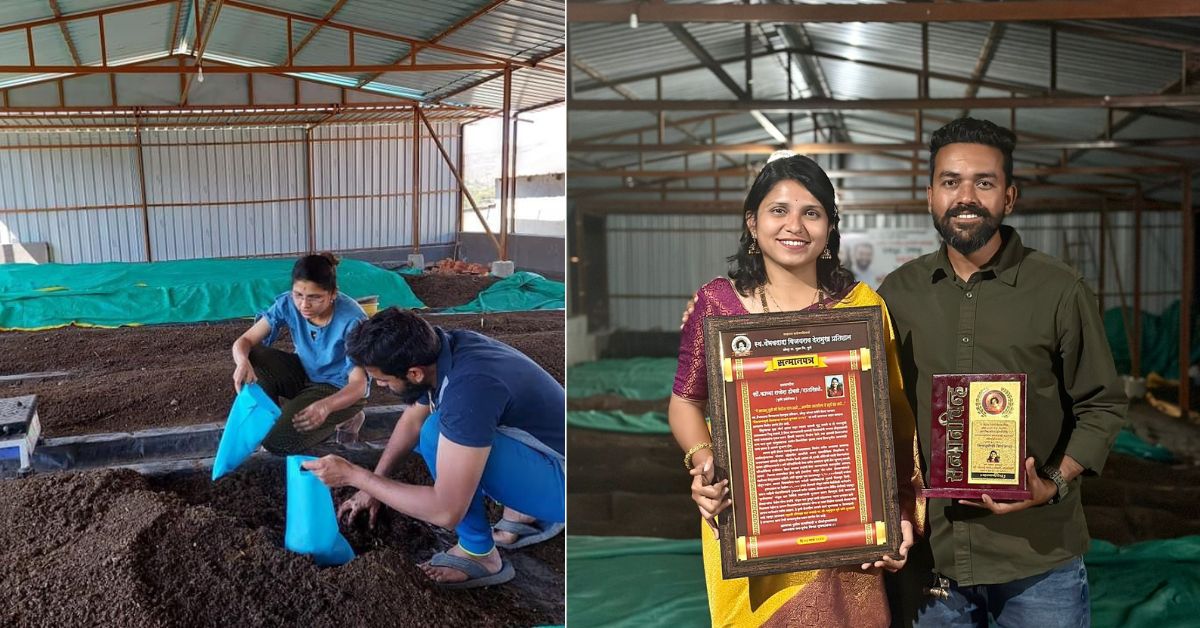Working tirelessly day and night to care for hundreds of patients amid the COVID-19 pandemic was overwhelming for Kavya Dhobale. She made significant personal sacrifices, such as choosing not to go home to protect her family and staying at the hospital to ensure her patients got the best treatment.
For her, the emotional toll of witnessing patients suffer, and sometimes die, was profound. “Suddenly their SpO2 (oxygen saturation) would drop, causing rapid heart rate and shortness of breath. While all of the doctors and nurses did their best, we could not save the lives of all of them. Because of infection risk, we weren’t even able to return dead bodies to grieving families,” she recalls.
After six months of staying at the hospital, Kavya was allowed to go home. During her quarantine period, she fell victim to COVID-19, and experienced severe symptoms, with her SPO2 level dropping below 65. “My condition was bad. I felt I was on my deathbed. But I survived,” she recalls.
This experience became a turning point for her.

“Today, so many people are susceptible to diseases like diabetes, hypertension, and cancer. Their immune systems remain compromised. I understood preventing diseases might be more impactful than treating them after they occur,” she says.
Her search for answers pointed her towards what we consume — the chemical residues in our food, compromising our immunity.
Kavya decided to leave behind the stability of her government job — a decision that bewildered her family — and pursue a revolutionary idea: organic farming.
Determined to bring health back to people and soil, she immersed herself in learning about vermicomposting: a sustainable practice that enriches soil naturally.
For people and the planet’s health
Kavya’s journey began in the bustling corridors of Lokmanya Tilak Municipal General Hospital and Lokmanya Tilak Municipal Medical College in Sion, Mumbai, where she earned her diploma in nursing in 2017. After obtaining her BSc in nursing, she imparted her knowledge as a tutor, nurturing the next generation of caregivers.
Driven by a desire to serve, she worked tirelessly as a staff nurse at TATA Hospital, tending to cancer patients. Her career took a significant turn in 2019 when she secured a government job at Sion Hospital. Here, she cared for patients grappling with cardiovascular surgeries and complex haematological disorders.
It was while working closely with COVID-19 patients that she decided to delve deeper into the root cause of rising diseases — the consumption of chemical-laden food. “Instead of trying to cure the patients in hospitals, I wanted to dive deeper into the issue and try solving it at the grassroots levels. I wanted to encourage farmers to switch to organic farming so that we produce chemical-free food and increase our immunity against future diseases and infections,” she shares.
In 2022, she quit her high-paying government job and moved to her in-laws’ home in Datkhilewadi village to address the root cause. She faced initial scepticism and challenges, especially from her family. Additionally, her capabilities were also questioned by farmers, who doubted a medico raised in Mumbai could thrive in agriculture. But she remained undeterred.
“When I returned to the village, I met a lot of farmers. After interacting with them, I learnt that there was an indiscriminate usage of chemical fertilisers. I saw there were hardly any earthworms in their fields,” Kavya recalls.
“When I questioned why they didn’t prefer organic fertilisers, they told me using [fresh] cow dung did not yield any result. This forced them to resort to chemical alternatives, which kill effective microorganisms like earthworms in the soil,” Kavya says.

She decided to prepare vermicompost on her own and showcase the benefits of organic farming. Soon, Kavya built a small shed to set up vermicompost beds. Investing Rs 5 lakh, she began with 10 vermicompost beds on a modest five guntha (0.2 acre) plot. In six months, she expanded them to 20 beds. “It takes about 60 days to prepare vermicompost using cow dung,” she informs.
Kavya manufactures about 20 tonnes of rich vermicompost every month, serving clients across Maharashtra. Priced at Rs 500 for a 50 kg bag, she has achieved an impressive annual sale of Rs 30 lakh, with a profit margin of 50 percent.
As she deepened her understanding through experimentation, Kavya realised the demand for vermicompost was immense. Not content with merely selling her product, she aspired to educate others. She established a training centre — Krushi Kavya Agro Vermicompost Training Centre — to engage more farmers in organic farming.
With a team of 10, she has so far trained over 3,000 people from Maharashtra, Goa, Karnataka, and West Bengal. Charging a fee of Rs 1,500 for a one-day training, she offers technical assistance to them as long as they require her help.

Varsha Markad, who took training from Kavya last January, says, “Under Kavya’s guidance, I gained hands-on experience after our initial theoretical lessons. She showed me the practical aspects of setting up compost beds and the entire process of transforming dung into compost, which was incredibly beneficial.”
This knowledge enabled her to establish a vermicompost unit. “We care for 200 bovines, providing them shelter, and utilise their dung for producing vermicompost. This not only helps us cover the costs of maintaining the cowshed but also generates profit. Just two weeks after completing my training, I was able to launch our unit, and now, I sell this organic fertiliser directly to farmers,” she adds.
Khushal Singh, who runs a non-profit for tree conservation, also undertook training from Kavya to learn the nitty gritty of vermicomposting. “We used to buy vermicompost from the market to plant our saplings, which we grow on largely barren land. These young plants need constant care for the first three years, and adding compost along with water significantly aids their growth. However, the cost of purchasing compost was adding up to our daily expenses. So, making our own compost not only helped us cut fertiliser expenses but also sell the excess to local farmers,” he adds.
Kavya’s journey from the healthcare trenches to agricultural fields is more than a career shift — it’s a mission. It’s about restoring health to both humans and the planet. As she navigates challenges, cultivates change, and impacts thousands, Kavya believes that healing can start from the soil beneath our feet.
“With each farmer trained, each field revived, and each life touched, our work offers hope that together, we can indeed save soil and, in turn, save ourselves,” she says.
Edited by Arunava Banerjee; All images courtesy Kavya Dhobale
No comments:
Post a Comment